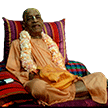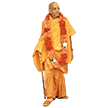Vedic Society - an essential subject: Difference between revisions
(Created page with "Category:Essential Subjects <!----------------------- edit below this line -----------------------> <!------------------------ begin introduction text --------------------...") |
(Vanibot #0041: Moves Choose Another box to the end) |
||
| Line 2: | Line 2: | ||
<!----------------------- edit below this line -----------------------> | <!----------------------- edit below this line -----------------------> | ||
<!------------------------ begin introduction text ------------------------> | <!------------------------ begin introduction text ------------------------> | ||
The term Vedic society refers to a state that is organized according to directions given in the Vedas. The Vedic social structure is not manmade but divinely inspired. Unlike the modern age, the Vedic social structure has existed for thousands of years. The Vedic society is called varṇasāśrama, which refers to its four material divisions (varṇas) and four spiritual divisions (āśrama). The Varṇas comprise of the brāhmaṇas, the kṣatriyas, the vaiśyas and the śūdras. Aśramas are categorized to brahmacharya, gṛhastha, vānaprastha and sannyāsa. | |||
Srila Prabhupada's books, lectures, conversations and letters offer a comprehensive presentation of this essential subject as seen in the Vaniquotes '''[[Vaniquotes:Category:Vedic Society|Vedic Society]]''' category. An introduction from his books is given below in the following | Srila Prabhupada's books, lectures, conversations and letters offer a comprehensive presentation of this essential subject as seen in the Vaniquotes '''[[Vaniquotes:Category:Vedic Society|Vedic Society]]''' category. An introduction from his books is given below in the following 5 quotes. | ||
<!-------- end introduction text and don't touch next three lines ---------> | <!-------- end introduction text and don't touch next three lines ---------> | ||
---- | ---- | ||
== Quotes from Srila Prabhupada's books == | == Quotes from Srila Prabhupada's books == | ||
<!----------------- edit quote boxes below this line -----------------> | <!----------------- edit quote boxes below this line -----------------> | ||
{{VaniQuotebox| | {{VaniQuotebox|According to the system of Vedic society, whenever an unknown sannyasi comes to a village or town, someone must invite him to take prasadam in his home|According to the system of Vedic society, whenever an unknown sannyāsī comes to a village or town, someone must invite him to take prasādam in his home. Sannyāsīs generally take prasādam in the house of a brāhmaṇa because the brāhmaṇa worships the Lord Nārāyaṇa śilā, or śālagrāma-śilā, and therefore there is prasādam that the sannyāsī may take. '''(Caitanya-caritāmṛta, Ādi-līlā 17.269)'''}} | ||
{{VaniQuotebox| | {{VaniQuotebox|In Vedic society, after the death of a relative, especially one's father or mother, one must go to Gaya and there offer oblations to the lotus feet of Lord Visnu|In Vedic society, after the death of a relative, especially one's father or mother, one must go to Gayā and there offer oblations to the lotus feet of Lord Viṣṇu. Therefore hundreds and thousands of men gather in Gayā daily to offer such oblations, or śrāddha. Following this principle, Lord Caitanya Mahāprabhu also went there to offer piṇḍa to His dead father. '''(Caitanya-caritāmṛta, Ādi-līlā 17.8)'''}} | ||
{{VaniQuotebox| | {{VaniQuotebox|Since the Vedic society is divided into four classes of men - the brahmanas, ksatriyas, vaisyas and sudras - their means of livelihood are also mentioned in the scriptures|Since the Vedic society is divided into four classes of men—the brāhmaṇas, kṣatriyas, vaiśyas and śūdras—their means of livelihood are also mentioned in the scriptures. The brāhmaṇas should live by spreading knowledge and should therefore take contributions from their disciples, whereas a king should give protection to the citizens for their development to the highest standard of life, and he can therefore levy taxes from them; businessmen or mercantile men, because they produce foodstuffs for the whole of society, can take a little profit from this, whereas the śūdras should give service to the higher classes of society and be provided by them with a supply of the necessities of life. '''(Śrīmad-Bhāgavatam 4.21.50)'''}} | ||
{{VaniQuotebox| | {{VaniQuotebox|The entire elaborate system of Vedic society was therefore based on the importance of the brahmanas and ksatriyas|The entire elaborate system of Vedic society was therefore based on the importance of the brāhmaṇas and kṣatriyas. The Lord is the real protector, but He is unattached to the affairs of protection. He creates brāhmaṇas for the protection of the kṣatriyas, and kṣatriyas for the protection of the brāhmaṇas. He remains aloof from all activities. '''(Śrīmad-Bhāgavatam 3.22.4)'''}} | ||
{{VaniQuotebox| | {{VaniQuotebox|There is no question of overpopulation or of children's being a burden for their parents in a Vedic society|There is no question of overpopulation or of children's being a burden for their parents in a Vedic society. Such a society is so well organized and people are so advanced in spiritual consciousness that childbirth is never regarded as a burden or a botheration. The more a child grows, the more his parents become jubilant, and the child's attempts to turn over are also a source of jubilation. '''(Śrīmad-Bhāgavatam 10.7.4)'''}} | ||
<!----------------- edit quote boxes above this line -----------------> | <!----------------- edit quote boxes above this line -----------------> | ||
| Line 31: | Line 25: | ||
'''Vedic Society - [[Vaniquotes:Category:Vedic Society|explore more within this category]]'''. | '''Vedic Society - [[Vaniquotes:Category:Vedic Society|explore more within this category]]'''. | ||
{{EsentialSubjectTotal}} | {{EsentialSubjectTotal}} | ||
<div style="float:left;"> | |||
{{EssentialSubjectnav}} | |||
</div> | |||
__NOTOC__ | __NOTOC__ | ||
__NOEDITSECTION__ | __NOEDITSECTION__ | ||
Latest revision as of 18:08, 22 November 2020
The term Vedic society refers to a state that is organized according to directions given in the Vedas. The Vedic social structure is not manmade but divinely inspired. Unlike the modern age, the Vedic social structure has existed for thousands of years. The Vedic society is called varṇasāśrama, which refers to its four material divisions (varṇas) and four spiritual divisions (āśrama). The Varṇas comprise of the brāhmaṇas, the kṣatriyas, the vaiśyas and the śūdras. Aśramas are categorized to brahmacharya, gṛhastha, vānaprastha and sannyāsa.
Srila Prabhupada's books, lectures, conversations and letters offer a comprehensive presentation of this essential subject as seen in the Vaniquotes Vedic Society category. An introduction from his books is given below in the following 5 quotes.
Quotes from Srila Prabhupada's books
Vedic Society - explore more within this category.
Vanipedia has now over 903 introductory articles compiled from Srila Prabhupada's books under the series titled Essential Subjects. All these articles can be seen in the Table of Content on the right side of this article and also here in this Umbrella Category. Browse through them to relish the breadth and depth of Srila Prabhupada's teachings - There is a subject for everyone.




